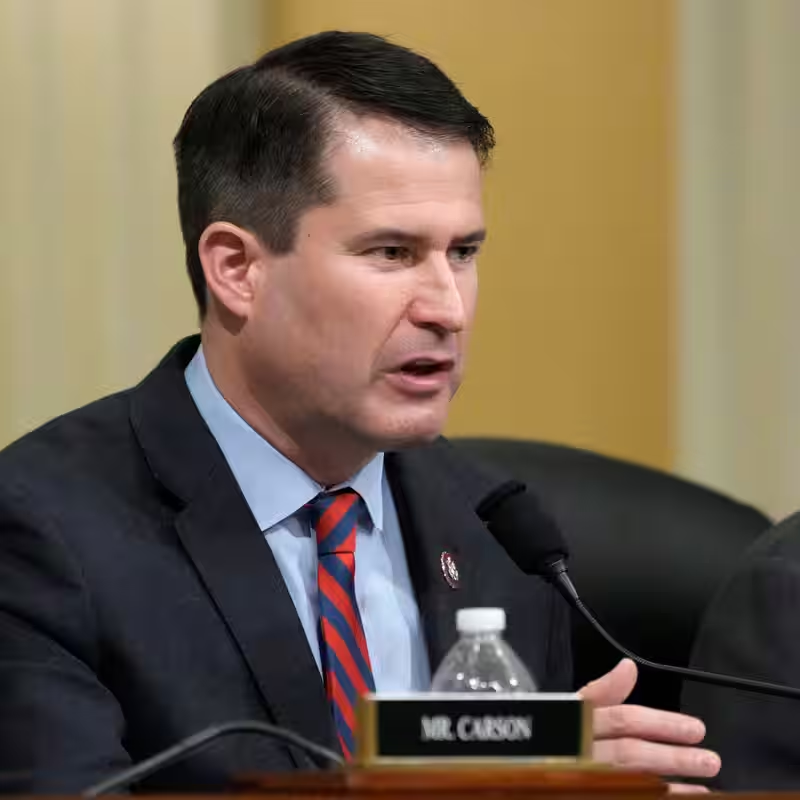Table of Contents
- Moulton Announces Challenge with Age as Central Theme
- The Generational Divide in the Democratic Party
- Markey’s Record and Likely Response
- What This Means for Massachusetts Voters
- Sources
Moulton Announces Challenge with Age as Central Theme
Representative Seth Moulton officially entered the 2026 U.S. Senate race in Massachusetts on Tuesday, launching a primary challenge against incumbent Senator Edward J. Markey. In a campaign video that immediately went viral across political circles, the 46-year-old Marine veteran framed his bid as a call for generational change—highlighting the stark age gap between himself and the 79-year-old senator.
“Our party has clung to the status quo, insisted on using the same old playbook, and isn’t fighting hard enough,” Moulton declared. “It’s time for a new generation of leadership.”
The announcement sets up a rare and potentially bruising intra-party battle in one of the nation’s most reliably blue states—a contest that could reflect broader tensions within the Democratic Party between its progressive old guard and a younger, more pragmatic wing.
The Generational Divide in the Democratic Party
Moulton’s campaign isn’t just about Massachusetts—it’s a microcosm of a national debate. With President Biden having turned 82 in 2024 and Senate leadership averaging over 75, many younger Democrats worry the party is out of touch with voters under 40, especially on issues like housing affordability, student debt, and climate adaptation.
Moulton, a four-term congressman from Salem, has long positioned himself as a bridge between moderates and progressives. He supports the Green New Deal but has also criticized what he calls “performative activism” that lacks legislative follow-through.
“We can’t just tweet about justice—we have to deliver it,” he said in his launch video, standing in front of a wind turbine on the North Shore.
Age and Tenure: Moulton vs. Markey
| Candidate | Age | Years in Congress | Key Legislative Focus |
|---|---|---|---|
| Seth Moulton | 46 | 10 (since 2015) | Veterans’ mental health, infrastructure, AI policy |
| Ed Markey | 79 | 49 (since 1976) | Climate change, net neutrality, nuclear disarmament |
Markey’s Record and Likely Response
Senator Markey, first elected to the House in 1976 and to the Senate in a 2013 special election, remains a beloved figure among Massachusetts progressives. He co-authored the Green New Deal with Rep. Alexandria Ocasio-Cortez and has championed youth engagement through his viral social media presence—earning him the nickname “Grandpa Markey” among Gen Z activists.
While Markey’s office has not yet issued a formal response, allies say he’s expected to lean into his policy legacy and deep grassroots network. “Ed didn’t just support the youth movement—he helped build it,” said one senior aide, speaking on background.
Still, Moulton’s challenge could resonate with suburban moderates and independents who feel the state’s delegation has become too ideologically rigid.
What This Means for Massachusetts Voters
The Democratic primary is unlikely to be decided until September 2026, but early polls suggest a tight race. A Suffolk University survey from last month showed Markey leading 48% to Moulton’s 39%, with 13% undecided—well within the margin of error.
Political analysts note that while Massachusetts rarely elects Republicans to federal office, a divisive primary could weaken the eventual nominee in a general election increasingly influenced by independent voters.
“This isn’t just about who’s older,” said Dr. Lisa Sanchez, a political scientist at UMass Amherst. “It’s about what kind of future Democrats want: one rooted in legacy or one built for disruption.”
[INTERNAL_LINK:seth-moulton] | [INTERNAL_LINK:ed-markey] | [INTERNAL_LINK:massachusetts-senate-race] | [INTERNAL_LINK:democratic-primary-2026]




